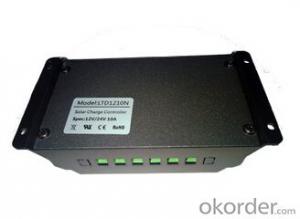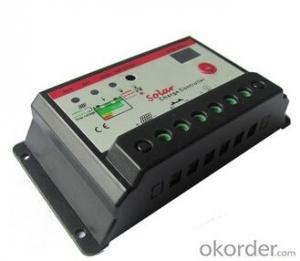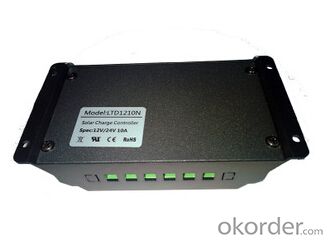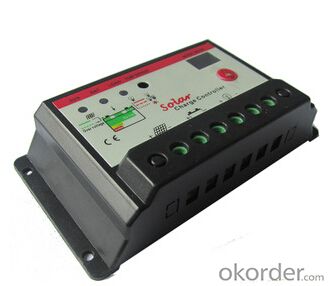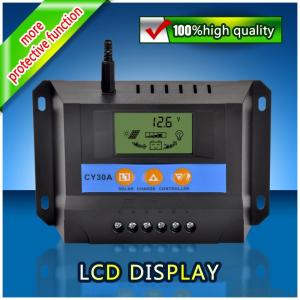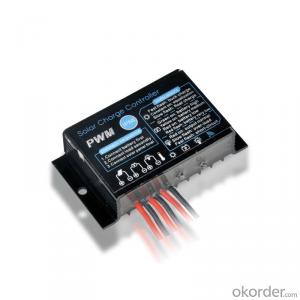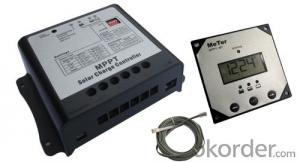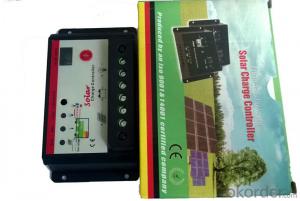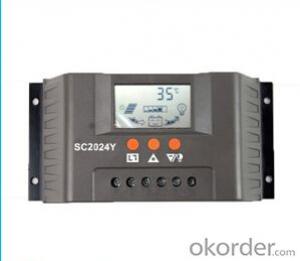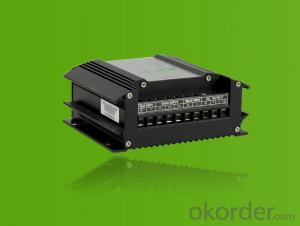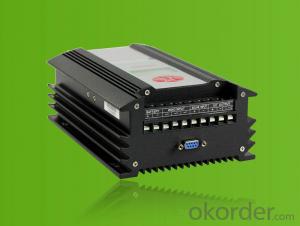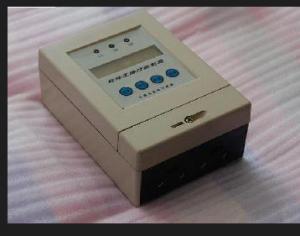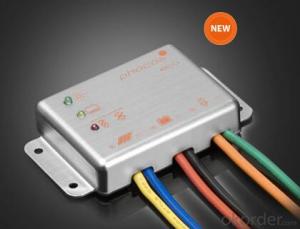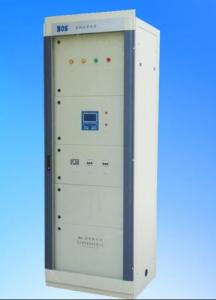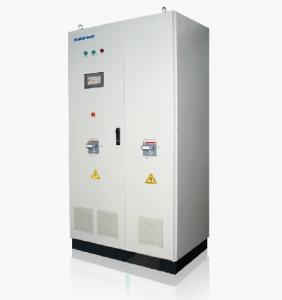Rv Solar Controllers for Sale - BYGD Solar Charger Controller Model SC3024S for Streetlight System
- Loading Port:
- Shanghai
- Payment Terms:
- TT OR LC
- Min Order Qty:
- 10 unit
- Supply Capability:
- 50 unit/month
OKorder Service Pledge
OKorder Financial Service
You Might Also Like
Details of products:
product model: SC3024S 30A
External Size:133mm×70mm
Mounting hole Size:126mm×50mm
Performance
12V/24V automatical adaption, control and set button changed into tact key, larger contact terminal can offer wire of 6 m2
◆ double LED digital display, clear for observation
◆ recharging mode by three phases
◆ PWM pulse modulated recharging technology
◆set light-dependent control and 1-13hous time control
◆short circuit protection, overvoltage protection, overcurrent protection and lighting protection
◆standy current no more than 5mA
example
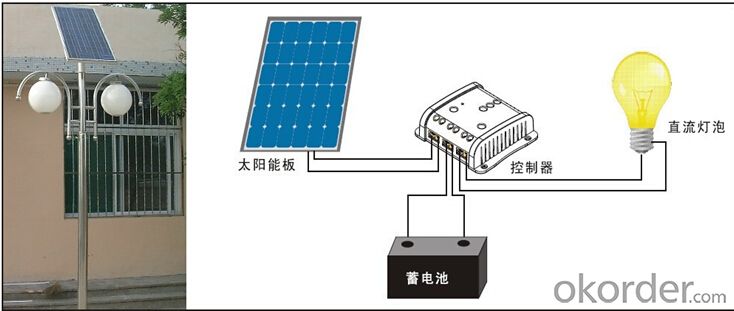
Technical characteristics
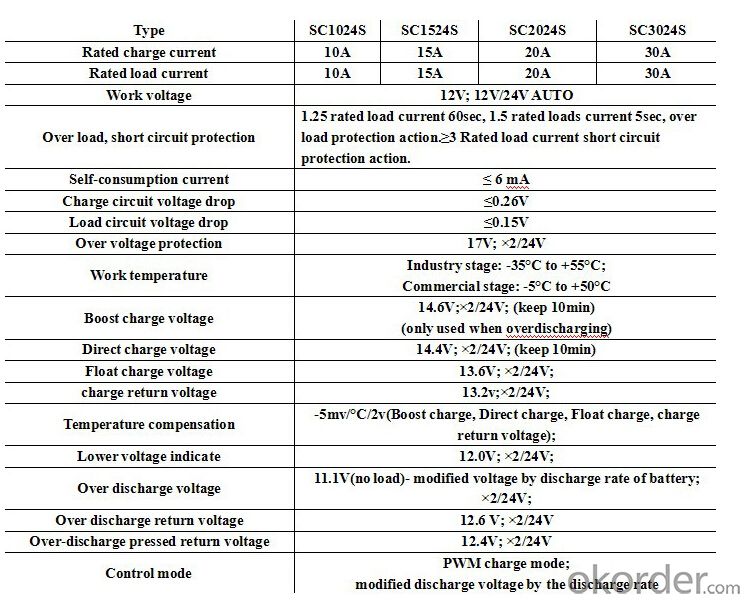
P.S.: This product is manufactured by order, so please call us for more info and service
- Q: How does a solar controller handle short-circuit or overload conditions?
- To safeguard the solar panel system from damage, a solar controller is specifically designed to handle short-circuit or overload situations. When such incidents occur, the solar controller utilizes various mechanisms to guarantee the system's safety and proper functioning. First and foremost, the solar controller typically incorporates an integrated fuse or circuit breaker. This component acts as a protective device that interrupts the current flow when it surpasses a specific threshold. In the event of a short-circuit or overload, the fuse or circuit breaker automatically trips, effectively cutting off the power supply and preventing any further harm to the solar controller and connected equipment. Furthermore, a solar controller may employ advanced electronic circuitry to detect short-circuit or overload conditions. These circuits continuously monitor the current flowing through the system and compare it to predetermined limits. If the current exceeds the specified limits, the controller promptly takes action to mitigate the situation. One common strategy employed by solar controllers is the utilization of pulse width modulation (PWM) or maximum power point tracking (MPPT). These techniques dynamically adjust the output voltage and current of the solar panel to optimize power transfer while preventing excessive current flow. In the case of a short-circuit or overload, the solar controller adjusts the output in real-time to ensure that the current remains within safe limits. Moreover, modern solar controllers often include additional protection features such as overvoltage protection, reverse polarity protection, and temperature compensation. These additional safeguards enhance the controller's ability to handle short-circuit or overload conditions by preventing potential issues that could arise from these scenarios. Overall, a solar controller utilizes a combination of protective devices, electronic circuitry, and advanced control techniques to effectively manage short-circuit or overload situations. By promptly detecting and responding to these occurrences, the solar controller guarantees the safe and efficient operation of the solar panel system, safeguarding both the equipment and the integrity of the power supply.
- Q: What is the maximum load current that a solar controller can handle?
- The maximum load current that a solar controller can handle depends on the specific model and its specifications. It is crucial to consult the manufacturer's information or refer to the product manual to determine the maximum load current that a particular solar controller can handle.
- Q: Can a PWM solar controller be used with an MPPT solar panel?
- No, a PWM (Pulse Width Modulation) solar controller cannot be used with an MPPT (Maximum Power Point Tracking) solar panel. MPPT solar panels require an MPPT solar controller to optimize the power output and efficiency, while PWM solar controllers are only suitable for use with PWM solar panels.
- Q: Can a solar controller handle different battery types (lead-acid, lithium-ion, etc.)?
- Yes, a solar controller can handle different battery types such as lead-acid, lithium-ion, etc. However, it is important to note that different battery chemistries have specific charging requirements, so the solar controller should be compatible and programmable to cater to the specific needs of each battery type.
- Q: Can a solar controller be used with solar-powered indoor food preservation systems?
- Solar-powered indoor food preservation systems can utilize a solar controller to regulate battery charging and discharging. The solar controller, a device that manages the flow of power in a solar power system, ensures efficient battery charging and safeguards against overcharging or overdischarging. In the context of solar-powered indoor food preservation systems, the solar controller plays a critical role in power management. By monitoring battery voltage and adjusting the charging process accordingly, it maximizes the utilization of solar energy. This optimization guarantees that the batteries consistently maintain their optimal charge levels, resulting in enhanced system efficiency. Furthermore, the solar controller offers valuable insights into the system's performance, including battery status, charging current, and voltage. This information aids in assessing the system's overall health and facilitates any necessary adjustments or repairs. In conclusion, the solar controller is a vital component of a solar-powered indoor food preservation system. It ensures efficient power regulation and optimization, leading to optimal operation and prolonged battery lifespan.
- Q: Can a solar controller be used with a solar-powered electric gate opener?
- Yes, a solar controller can be used with a solar-powered electric gate opener. The solar controller is responsible for regulating the voltage and current from the solar panels, ensuring that the gate opener receives the correct amount of power.
- Q: What is the typical standby power consumption of a solar controller?
- The standby power consumption of a solar controller can vary depending on the specific model and brand, but most modern controllers have a very low standby power consumption. On average, these controllers consume as little as 0.1 watts to about 1 watt when not actively controlling the solar system. Efficient design and advanced power-saving technologies enable these controllers to achieve such low standby power consumption. They are designed to minimize energy waste and only use a minimal amount of power when not actively controlling the solar system. It is important to consider that standby power consumption may also be influenced by factors like the size of the solar system, the complexity of the controller's features, and any additional accessories connected to the controller. Thus, it is always advisable to consult the manufacturer's product specifications for accurate information on the standby power consumption of a specific solar controller.
- Q: How does a solar controller protect batteries from overcharging?
- A solar controller protects batteries from overcharging by regulating the voltage and current output from the solar panels. It constantly monitors the battery's state of charge and adjusts the charging process accordingly. When the battery reaches its optimal charge level, the controller will reduce or completely cut off the charging current to prevent overcharging, which can lead to damage or reduced battery life.
- Q: Can a solar controller be used with flooded batteries?
- Yes, a solar controller can be used with flooded batteries. Solar controllers are designed to regulate the charging process of batteries, including flooded batteries. They help prevent overcharging and maintain the battery's optimal performance and longevity.
- Q: Is it necessary to have a solar controller for every solar panel?
- No, it is not necessary to have a solar controller for every solar panel. A solar controller, also known as a charge controller, is typically used to regulate the flow of electricity from the solar panels to the batteries or grid. In some cases, a single solar controller can be used to manage the output of multiple solar panels, especially if they are connected in series or parallel configurations. The number of solar controllers required depends on the specific system design and requirements.
Send your message to us
Rv Solar Controllers for Sale - BYGD Solar Charger Controller Model SC3024S for Streetlight System
- Loading Port:
- Shanghai
- Payment Terms:
- TT OR LC
- Min Order Qty:
- 10 unit
- Supply Capability:
- 50 unit/month
OKorder Service Pledge
OKorder Financial Service
Similar products
Hot products
Hot Searches
Related keywords
